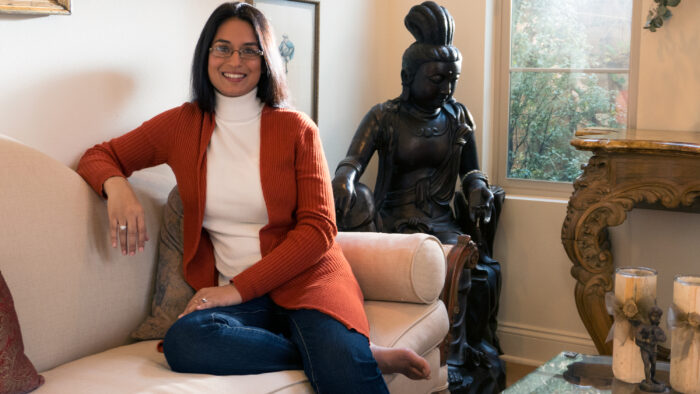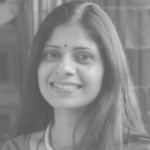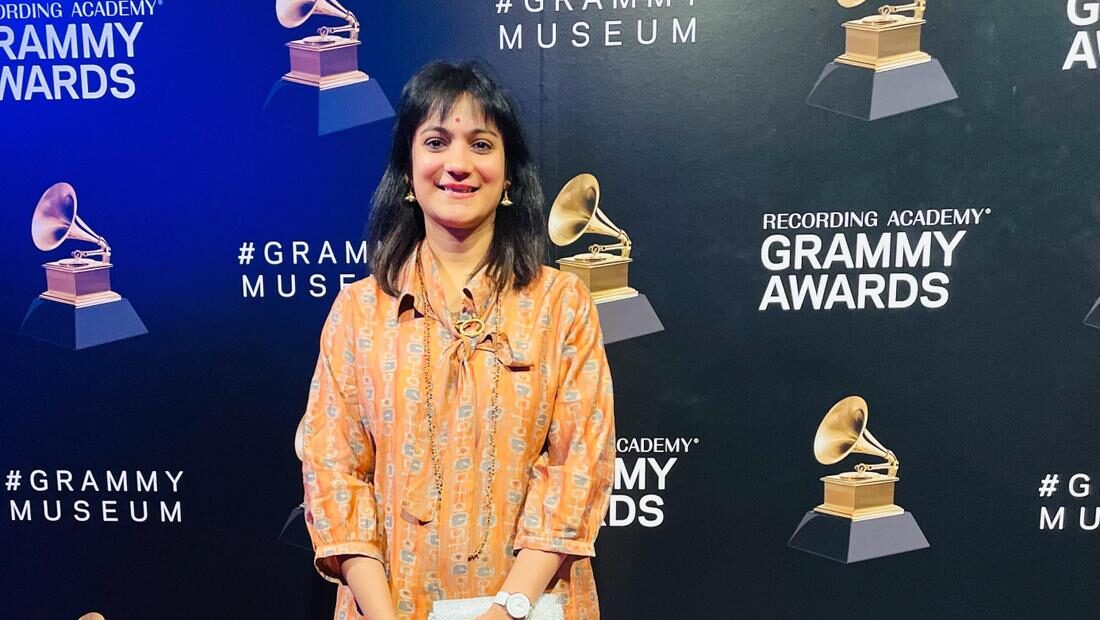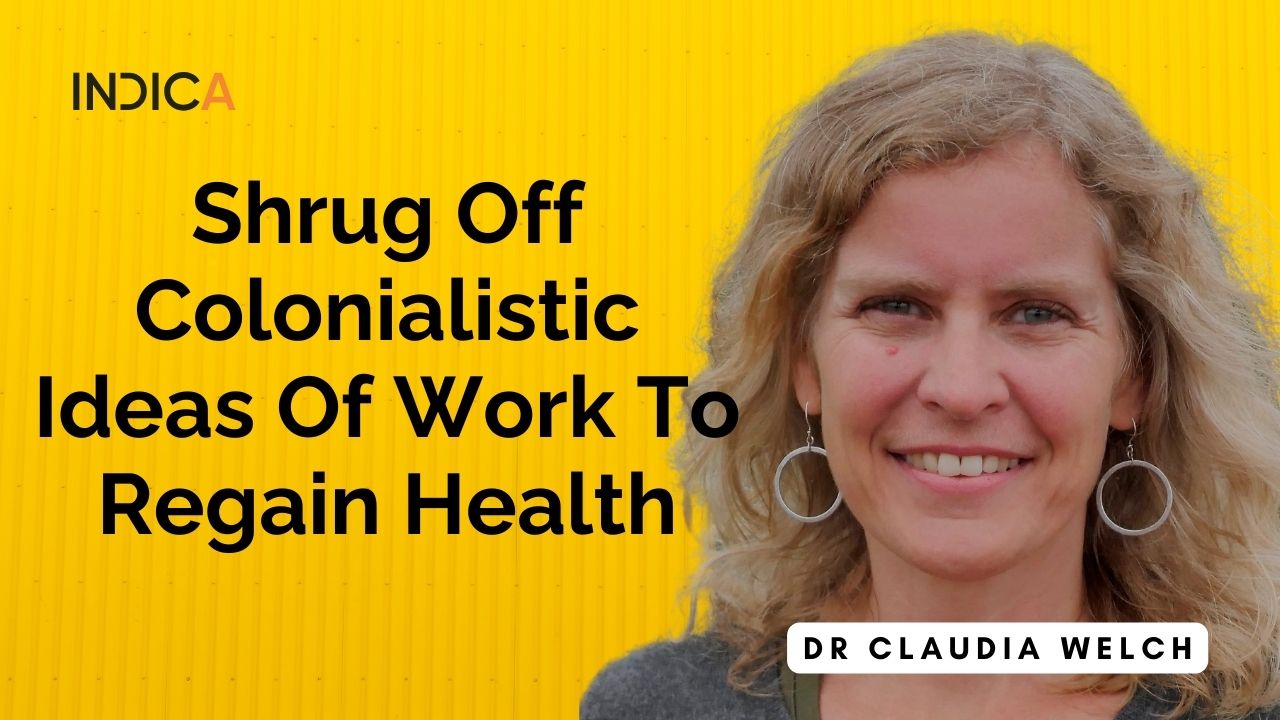Dr Kulreet Chaudhary, Integrative Neurologist, starts her book The Prime, saying that her grandfather was a doctor for a large community of people in a town near Ludhiana in India. She says that after many years as a doctor in the United States, she has reached a stage where she feels she is now practicing medicine much the way her grandfather did.
“When somebody got sick, he wasn’t seeing the patient for the first time, in isolation, with no knowledge of his or her history or life. In most cases, he was also taking care of the sick person’s parents, grandparents, and children. He understood how they lived. He created a loving bond with his community, and that bond allowed him to influence the entire family’s health over the years,” she writes in her book authored with Eva Adamson.
Dr Chaudhary says that today patients are living in a kind of medical dual reality, and so are doctors. “Who is right depends on which question is being asked.” She gives us a simple rule of thumb in her book. 1. If the question is “Which medications can treat my current symptoms?” then your conventional doctor’s answer is likely right. 2. If your question is “How do I get off medications and reverse this disease process?” then your integrative doctor’s answer is likely right.”
Dr. Chaudhary’s combined expertise in both modern neurology and Ayurveda has uniquely positioned her as an expert able to pull from the broadest possible base to treat her clients. She is passionate about raising awareness for the need of a paradigm shift in contemporary medicine that focuses on patient empowerment and a health-based (rather than disease-based) medical system. Dr. Chaudhary is a regular guest on the Dr. Oz show, where her teachings about Ayurvedic medicine have been applauded by a national audience.
Dr. Chaudhary was the Director of Wellspring Health in Scripps Memorial Hospital for ten years, and remains a pioneer in the field of Integrative Medicine. She has successfully developed a powerful system to manage chronic neurological disorders such as multiple sclerosis, Parkinson’s disease and migraine headaches, by incorporating fundamental changes in diet, behavior, and stress, in addition to the standard allopathic approach to these issues. This program has been so successful that many patients now use it not just for neurological issues but also for a wider range of health concerns, including weight issues and chronic disease.
Dr. Chaudhary is the author of The Prime and Sound Medicine. She is also a neuroscientist and has participated in over twenty clinical research studies in the areas of multiple sclerosis, Alzheimer’s disease, Parkinson’s disease, ALS, and diabetic peripheral neuropathy. Her research includes groundbreaking work in stem cell therapies for diabetic peripheral neuropathy and drug development for the treatment of ALS.
In this interview with CSP, Dr Chaudhary talks about her experience with Ayurveda and integrating it with conventional medicine.
Dr. Chaudhary you took up meditation at the age of 9. What kind of an impact did it have on your life circumstances and the choices you made in subsequent years?
Learning mantra meditation at 9 years of age completely changed my perspective of life. It introduced me to the concept and experience of silence and gave me a way to cope with stress without the typical needs for numbing behaviors, like alcohol, drugs and food addictions that so many adolescents and young adults turn towards to cope with stress. To this day, I’m not drawn to outward numbing behaviors thanks to this inward stress removal pathway of meditation. That doesn’t mean I lead a perfect life, but I always had this internal compass that brought me back to my true self no matter how challenging life became.
Indian texts and rishis have talked about health and longevity in the Vedas. In Ayurveda too health is not just the absence of disease. What led you to integrate this ancient wisdom with your strong neurology background?
I wish I could say it was a deep intuitive process that lead me towards Ayurveda as a neurologist but it was actually my own struggle with migraine headaches that lead me to integrate Ayurveda and neurology. I was a neurologist at the time I developed debilitating migraine headaches. None of the medications I was using for migraine headaches were working. When I tried the Ayurvedic recommendations, my headaches were gone within a few months and my overall energy, creativity and gut health improved as well, much to my surprise. That’s when I realized I had to explore this the option of combining the two specialties together if I wanted to really understand how to approach neurological conditions successfully.

Modern science looks at aging from the biological and the chronological perspective. Researchers are studying the senescence target genes for anti-ageing. According to the Sushruta Samhita, human life can be normally prolonged to 100 years. Yet, with the use of certain Rasayana remedies (such as Brahmi Rasayana and Vidanga-Kalpa), life can be prolonged to 500 or 800 years. Ayurveda has solutions for most modern-day problems but is under pressure to scientifically prove itself through western lenses. What are your thoughts?
This has been one of the biggest challenges with bringing Ayurveda to the medical community - the lack of scientific investigation. But this is changing as more studies are being done in Ayurveda and as an allopathic physician and scientist, I have to embrace the need for scientific validation in our current medical paradigm. However, if you look at the full spectrum of Ayurveda, so much of the health prescriptions are behaviors based on common sense. You don’t need to scientifically validate some of these basic behavioral principles that are so often overlooked in our pursuit to find the perfect “herb.” There is no supplement that takes the place of good habits.
Could you briefly tell us about the 4 stages of The Prime and how it integrates Ayurveda with Western medicine. You mention making changes in biochemistry and in changing thought patterns.
I developed The Prime when I realized how difficult it was for people to change their habits around food choices due to the biochemical blocks resulting from modern life. Each stage of The Prime is created to help overcome those biological blocks, which include the impact of food addictions on our ability to make healthy food choices due to the process of neuroadaptation. The Prime is a modern Ayurvedic approach to the contemporary challenges of good health, including the impact that environmental toxins have had on overwhelming our detoxification pathways. It’s a program I recommend that people do once a year to maintain optimal brain-gut health.
Weight management is such a preoccupation in modern society. How did you manage to find a solution as you treated other serious diseases?
What happened with my approach is that as I was treating chronic diseases, I realized I had serendipitously come up with a weight loss/weight management program as an unexpected side effect. As you reduce inflammation and the other causes of chronic disease in the body, you lose weight. Our weight epidemic is a result of our chronic disease epidemic and most people attempt to lose weight the hard way, through willpower, without realizing there is a biochemical state associated with weight gain that requires a scientific, medical solution.
What are the areas specifically in which you have integrated Ayurveda with Western medicine to find positive results?
In my medical practice, Ayurveda provided positive results in every specialty within medicine because it is really just matching personalized, healthy lifestyle practices to people’s conditions. What doesn’t improve when you choose a healthier life? Everything improves. But the sooner in a disease process that someone began the changes, the more effective Ayurveda is. Many people are surprised that psychological conditions improve via Ayurveda, but again the mind-body complex is ultimately biochemistry and you can shift biochemistry with biochemistry using lifestyle as an epigenetic influencer.
Could you please talk a bit about your research in Siddha medicine.
This research is still on-going and was interrupted by the COVID pandemic so I’ll be able to comment on this in the future.
We did a session last year on Mantras and Neuroplasticity (https://youtu.be/l2LBQpMEi1E). Have you done research into the impact of mantras on patients suffering from debilitating disease?
I am in the process right now of discussing this type of work with a research institute in Europe that treats childhood genetic illnesses. The use of mantra is an under-studied area and the scientific community is still highly skeptical at the potential use of sound medicine in chronic conditions. Even though there has been so much research into the benefits of Transcendental Meditation in America, there is still not a coherent medical paradigm that allows the application of mantra meditation as part of a new biological medical model. But that is changing as scientific theories of the human biofield are being more widely explored.
Ayurveda's Nadi Pareeksha helps to diagnose not only the state of health but also predict lifespan and quality of life. How do you think we can incorporate this important tool for mapping the course of life and health?
We can use it simply by implementing it as part of medical training. Pulse diagnosis gives us so much insight into the patient. Beyond trying to map out an entire life, it helps us to connect to all of the layers—physical, emotional and spiritual—of the patient’s current state of health. There are so many diagnostic tools available simply by observing the body and pulse diagnosis is among the most useful tools I have ever learned.
You have appeared regularly on the Dr Oz show. What is the public perception of common Americans about Ayurveda and also the perception of those in the alternative health space?
What I have observed over the past two decades is that Ayurveda is gaining more and more relevance in America due to both the efficacy and increased scientific research into many of the basic Ayurvedic herbs, such as Ashwaganda, as well as for its personalized approach. There is so much common-sense knowledge from Ayurveda that is now widely accepted by Americans, such as the concepts of intermittent fasting and the gut-brain connection, and more Americans are seeking out Ayurveda for simple, practical and cost-effective solutions to chronic disease. What has surprised me is not the rise of popularity of Ayurveda in America, but rather the decline of popularity of Ayurveda in India—that astounds and confuses me!
There is no easy answer, but how do we move the focus away from managing disease, to empowering individuals to take responsibility for their health.
You begin by talking about two of the most important aspects of health—diet and stress. If we begin looking at and changing what we eat and what we think, you can solve at least 80% of all health problems. It is actually a very simple solution, but what I have found is that the complexity with which we are living in the modern life can make the simplest solutions seem difficult to implement. But they are not—just start with one small simple step at a time. That is how I approach my patients—small, simple, daily steps to help them change what they are eating and what they are thinking.





